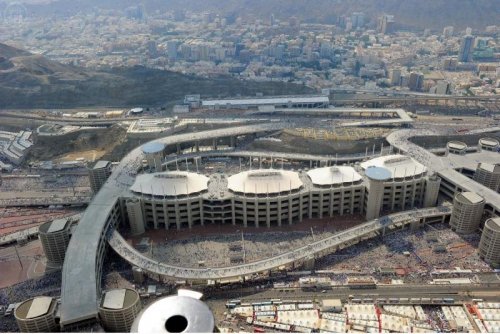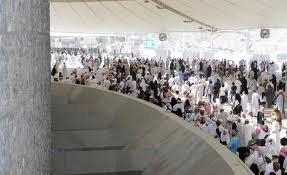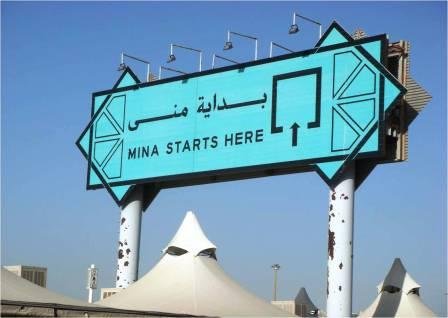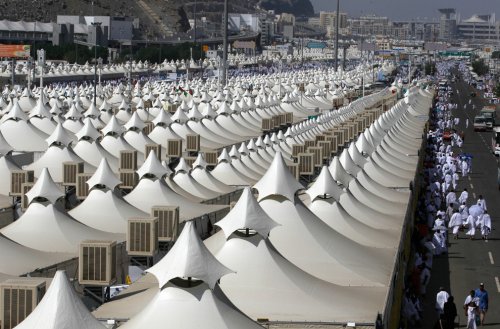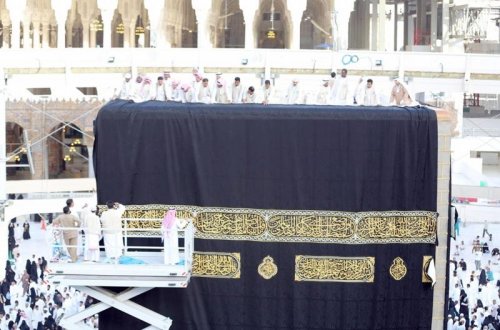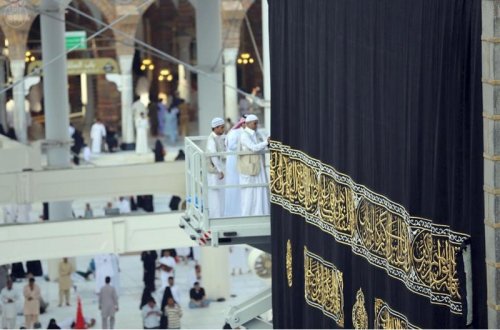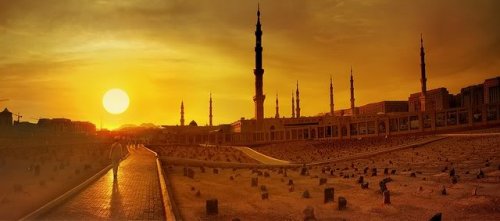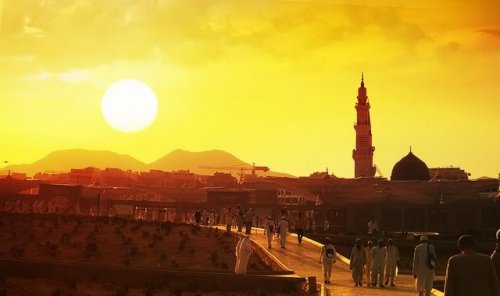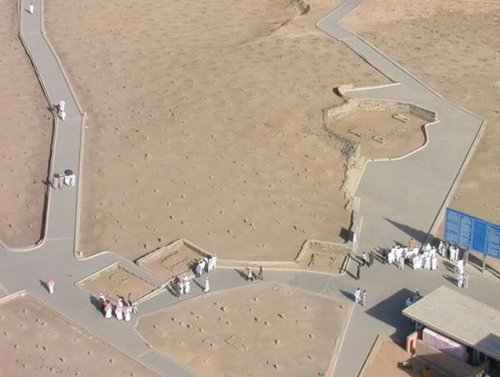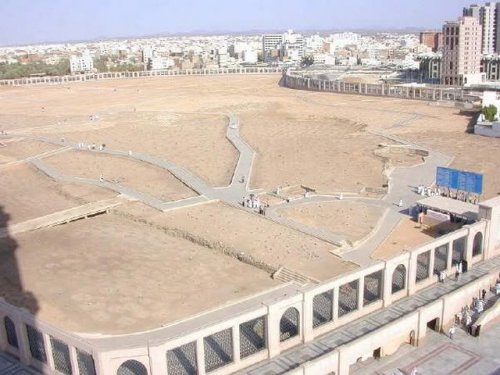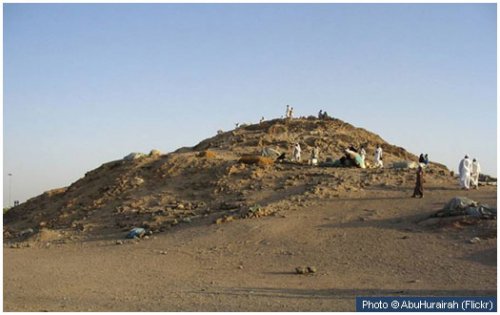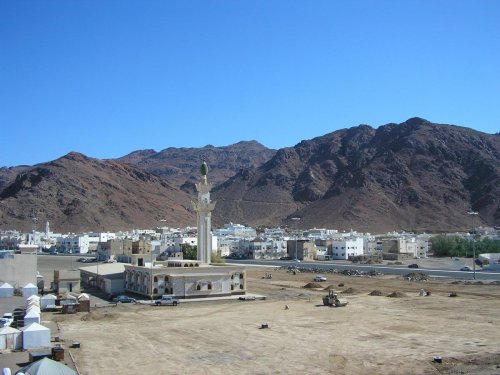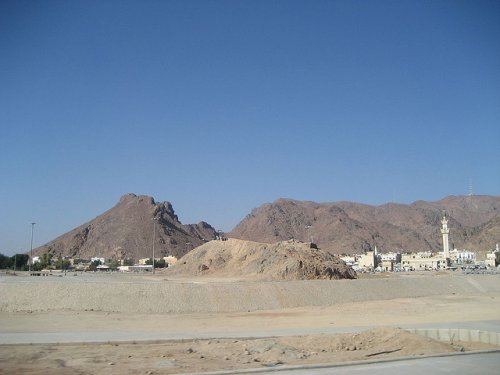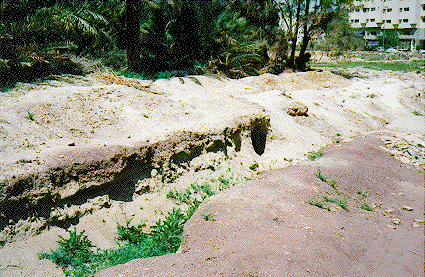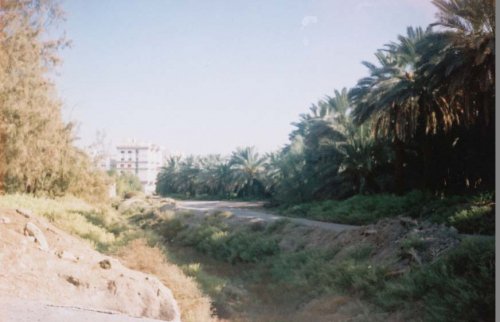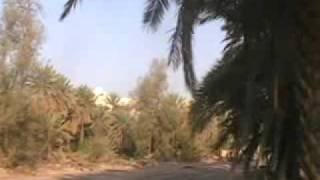-
Posts
8,434 -
Joined
-
Days Won
771
Content Type
Profiles
Forums
Events
Everything posted by ummtaalib
-
Fifth Plot Tabari, the famous historian, has described it as follows: ‘The head of the service personnel of the Prophet’s mosque was Shamsuddin Sawab Lamti who was a very gentle and kind person. Sawab said that he had a close friend who happened to be known to the ruler of Madinah. This friend often kept him informed about the major news. One day this friend said to Sawab, ‘A big event is about to take place. Some people have come from Halb in Syria. They have bribed the ruler of Madinah and have demanded from him the bodies of Abu Bakr [Radhiallaahu anhu] and Umar [Radhiallaahu anhu]. The ruler has consented to it.’ ‘Sawab got very worried. Shortly afterwards a messenger of the ruler of Madina came and took Sawab to the ruler. The ruler said to Sawab, ‘Some people will knock at the door of the Prophet’s mosque at night. Open the door for them and let them do what they want to do. Don’t interfere in any way.’ Sawaab said that he answered the ruler the way the ruler wanted him to answer. He then came back and I was crying bitterly. After Salaatul Isha, the doors of the Prophet’s mosque were closed as usual. Shortly afterwards, somebody knocked at the door known as Baab salaam. The ruler of Madina used to live in a fort in front of Baab salaam. Sawab opened the door. Forty people entered the mosque, he was counting them one by one. They had equipment to demolish building and were carrying torches with them. They were heading towards the Sacred Chamber. They had not yet even reached the pulpit when the earth split under their feet and they were buried with their equipment then and there. There was no sign left about their presence on the surface of the earth.’ ‘The ruler waited for them for a while. Finally, he sent for Sawab and asked him, ‘Sawab, did some people not come to you?’ He said, ‘Yes, indeed. They were, however, buried in the earth.’ The ruler said, ‘Think before you speak. How can this happen?’ Sawab invited him to see the spot with his own eyes. The ruler said, ‘Leave the matter as it is. Don’t mention this to anybody. I shall cut your head off if you talked about it.’ Samhoudi said, ‘Abu Muhammad Abdullah Margani has also described this plot briefly in the History of Madina. He has, however, mentioned that the number of these people was fifteen or twenty and they were swallowed by the earth when they had gone only a few steps towards the Sacred Chamber.’ Note that the enemies of Allah make plans and Allah also makes plans. However, Allah is the Best planner. ‘They were plotting and Allah too was plotting and Allah is the Best plotter (or planner).’ (al-Anfaal 30) Indeed, Allah fulfilled his promise to Prophet Muhammad [sallallaahu Alayhi Wasallam] as mentioned in Surah al-Maaidah 67, ‘and Allah will protect you from the people.’ Source: Jamiat, Alinaam.org, others
-
Fourth Plot Ibn Jubayr [ra] has given detailed of this plot. He said, ‘On 29th Dhul-Qa’adah 578H, I arrived in Alexandria during my excursion tour of Egypt. We left Alexandria on the 8th of Dhul-Hijjah. We saw there that a very big crowd of people came out of their homes to see the Roman Christian prisoners. These prisoners were brought to the city on camels with their faces towards the tails of the camels. Bugles were being blown and other music was being played around them. We enquired about these prisoners. We were given a detailed picture of their cruel activities, which was as follows.’ ‘The Christians of Syria built some boats near Mediterranean sea and transported these boats on the backs of camels to the bank of the sea. There, they equipped the boats for war activities. They then set out in the sea with these boats and plundered the caravans of pilgrims for Makkah. When they reached river Naam where they burnt sixteen boats of other people. Then they reached Eizaab and captured a caravan of pilgrims coming from Jeddah. Similarly, they overpowered a caravan which was travelling from Qaws towards Eizaab and killed all the people. Two boats of traders were coming from Yemen with food grain for Makkah and Madinah. They burnt the storage of this food grain. They carried out many such evil activities. Their most treacherous plan was to remove the body of the Prophet Muhammad [sallallaahu Alayhi Wasallam] from the Sacred Chamber. They announced it boldly and started heading towards Madinah. When they were about one day’s journey away from Madinah, the famous Haajib Lu-lu came with a few Moroccan youths who were expert in sea warfare. They arrested these Christians and killed some of them then and there. They also sent some of these prisoners to other cities to be put to sword. Some prisoners were sent to Makkah and Madinah. The prisoners whom we saw were brought to Alexandria. In this way, Allah saved his Prophet [sallallaahu Alayhi Wasallam] from these criminals.’
-
Third Plot It took place in 557H (1164C). Samhoudi reported that the Christians made this plot very carefully to steal the body of the Prophet [sallallaahu Alayhi Wasallam]. There was a very pious ruler of Egypt at that time known as Sultan Nuruddin Zanki. One night after Tahajjud, he saw the prophet [sallallaahu Alayhi Wasallam] in his dream. The Prophet [sallallaahu Alayhi Wasallam] was pointing out towards two persons of reddish colour and saying, ‘ ‘ i.e. Save me from these two persons. Nuruddin woke up and was perplexed. He did ablution, performed his Salaat and went back to sleep. He again saw the same dream. He woke up and again offered his Salaat and went to sleep. He saw the same dream the third time. He lost his sleep and described his dreams to his advisor, Jamalud-din al-Musali. The advisor said to him, ‘Why are you sitting here? You should go to Madinah immediately.’ He added, ‘Please do not relate your dream to any other person.’ Nuruddin started his journey towards Madina the next morning. He took twenty persons with him including the advisor. They carrid many expensive gifts with them for charity. They reached Madina in sixteen days. Nuruddin entered the Prophet’s mosque and offered Salaat. Then he did salutation to the Prophet [sallallaahu Alayhi Wasallam] and his companions. Nuruddin sat down in the mosque wondering what to do next. The advisor announced, ‘Sultan has brought lots of gifts for charity. These gifts will be distributed among the residents of Madina. Sultan granted a gift to each resident of Madina turn by turn. Sultan looked at each recipient very carefully to match the features with those seen in the dreams. Finally, Sultan enquired, ‘Have all the residents visited me?’ The answer from the residents was, ‘Yes, indeed.’ Sultan said, ‘Are you really sure?’ People said, ‘There are two pious Morrocans who do not accept anything from others. They rather fed the needy very generously. They fast regularly. Offer Tahajjud and offer salutation to the Prophet [sallallaahu Alayhi Wasallam] day by night. They also visit Quba mosque once a week.’ Sultan explained, ‘Subhaanallah’. Sultan then ordered that both of them be brought to him. The Moroccans said, ‘We are very rich and don’t need charity.’ On insistence of the Sultan, they were brought to him. Sultan recognised them and asked them, ‘Where do you come from?’ They said, ‘We are Moroccans. We came here for Hajj and wish to stay here as neighbours of Prophet [sallallaahu Alayhi Wasallam].’ The Sultan said, ‘Why don’t you speak the truth?’ At that, they kept quite. Sultan enquired about their residence. Their residence was near the Sacred Chambr. Sultan accompanied them to their residence. He found a lot of expensive good lying there. Sultan kept roaming around the house alone till he removed an old piece of rug from the floor of the house. He saw a newly dug underground tunnel there leading to the Sacred Chamber. The men got terrified. Sultan said to them, ‘Now tell me the truth.’ They confessed, ‘We are actually Christians . the King has sent us here as Hajji from Morocco. He gave lot of money to us so that we could remove the body of the Prophet. In order to achieve our goal we started residing in this house nearest to the Sacred Chamber. We dig underground tunnel at night and carry the mud in Moroccan bags to Baqee cemetery and spread the mud around the graves. When we reached near the Sacred Chamber a very fearful lightning struck and an earthquake shook the earth. Now you have arrived and caught us. We confess that we were about to commit the crime.” The Sultan ordered the execution of these criminals. He thanked Allah who chose him to discover the plot. First two plots were made between 386H and 411H. The third plot took place in 558H. After this third plot, Sultan Nuruddin ordered to dig a deep trench around the Sacred Chamber. He filled this trench with molten lead. In this way, nobody will ever be able to reach the graves through underground tunnels. It will be appropriate to mention here that the Sultan stayed in a house in Madina called Daar al-Ziaafa and distributed charity to the residents of Madina from this location. This house existed just outside the door known as Baab Umar. This house was included in the Prophet’s Mosque during the second Saudi extension of the Mosque. The site where the lead was melted was just outside Baab salaam and was known as Saqeefautr rasaas. When Qamash market caught fire on the 18 Rajab 1397H, this house was also burnt in the fire. The house where the Christians stayed and dug the tunnel was located outside the present window across the Sacred Chamber in the southernmost wall of the mosque. Ibn Aseer said, ‘Suldan Nuruddin Zanki was a very pious and just ruler.’ (Wifa-ul-Wifa)
-
Second Plot Ruler Ba Amrullah hatched a second plot but failed again. Ibn Sa’doon has reported this in his book that Ba Amrullah sent some people to carry out his evil plans. These people started residing in a house near the Prophet’s mosque and started digging an underground tunnel to reach the grave of the Prophet [sallallaahu Alayhi Wasallam]. During this, a fearful lightning struck the area and the following voice was heard, announcing very loudly, ‘Your Prophet’s grave is being dug!’ The residents of Madina rushed out of their houses and started investigating. They got hold of the culprits and killed them all.
-
Attempts to steal the body of the Prophet Sallallahu Alayhi Wa Sallam and His Companions First Plot In the beginning of the fifth century Hijra, the first attempt was unable to transfer bodies of Prophet Muhammad [sallallaahu Alayhi Wasallam] and his two companions from Madina to Egypt. Order was issued by Egyptian Fatami ruler Ba Amrullah. Abul-Fatuh, the governor of Makkah and Madinah, was to carry out this plot. Ba Amrullah was the sixth Obeidi ruler. He was very cruel and a criminal. Daruz of Lebanon still regard him a holy person. May Allah’s curse be upon him. Ibn Najjar wrote in his book, ‘History of Baghdad’, Ba Amrullah hatched this plot to attract the attention of the world to Egypt and thus allowing the residents of Egypt to gain respect. The ruler spent a lot of money to build an expensive enclosure for this purpose. He sent Abul-Fatuh to Madina to carry out the plan. When Abul Fatuh arrived in Madinah, the residents of Madina came to know about this plot. They gathered aroundhim. Qari Zalbani recited the following verses of the Qur’aan there: ‘But if they violate their oaths after their covenant, and attack your religion with disapproval and criticism, then fight the leaders of disbelief – for surely their oaths are nothing to them – so that they may stop. Will you not fight a people who have violated their oaths and intended to expel the messenger while they did attack you first? Do you fear them? Allah has more right that you should fear Him if you are believers.’ (al-Tawbah 12-13) The residents of Madina got very furious and were about to kill Abul-Fatuh and his soldiers. This made Abul-Fatuh scared. He said, ‘I shall never carry out this dirty plan even if the ruler kills me.’ In the meanwhile, a big storm swept through this area that evening. Many houses, animals and people died of this storm. Abul-Fatuh found a good excuse to run away from Madina. Allah saved the Prophet [sallallaahu Alayhi Wasallam] and his companions from these criminals. Source: Jamiat, Alinaam.org, others
-
'EID SA'EED!!! Wherever you are & Whenever it is for you!
-
-
-
MONDAY NIGHT IN MUZDALIFAH After the sunsets at Arafat the pilgrims leave on their journey to Muzdalifah where they spend the night in worship and rest
-
HAJJ 1434 - 9 DHUL HIJJAH (MONDAY 14 OCTOBER 2013) Day of Arafah Billion hearts only 1 voice ........ " ﻟَﺒَّﻴْﻚَ ﺍﻟﻠَّﻬُﻢَّ ﻟَﺒَّﻴْﻚَ ، ﻟَﺒَّﻴْﻚَ ﻻ ﺷَﺮِﻳﻚَ ﻟَﻚَ ﻟَﺒَّﻴْﻚَ ، ﺇِﻥَّ ﺍﻟْﺤَﻤْﺪَ ﻭَﺍﻟﻨَّﻌْﻤَﺔَ ، ﻟَﻚَ ﻭَﺍﻟْﻤُﻠْﻚَ ، ﻻ ﺷَﺮِﻳﻚَ ﻟَﻚَ " " Labaik Allahuma labaik,labaika la sharika laka labaik, inna l'hamda wannemata laka walmulk laa sharika Lak "
-
Regarding the Destruction of Holy places in the Haramayn Often arguments are heard for and against the destruction of places with historic significance in the Holy cities of Makkah and Madinah. There are those who place great significance on visiting such places while others argue such visits and placing such importance on these places amounts to shirk. The following is an article by Shaykh Faraz Rabbani explaining how Muslims from the earliest generations have sought blessings (tabarruk) of individuals, objects, places and times. By Faraz Rabbani (Islamica Magazine, Issue 15) EVERY YEAR, Muslim holy sites are destroyed at an alarming pace. What is perhaps more alarming is that some Muslims see no problem with this. Rather, they may even feel that this is a good thing because an “exaggerated emphasis” is placed on the holiness of such sites. This overstated emphasis, they fear, could weaken or cloud sound understanding of the Oneness of God and reliance solely upon Him. However, Muslims from the earliest generations have sought blessings (tabarruk) of individuals, objects, places and times. The Companions of the Prophet Muhammad (peace and blessings of God be upon him) vied with each other for his hairs, sweat, leftover water from wudu, and objects related to him, as established in rigorously authenticated hadiths. We see this practice in subsequent generations, too. Imam Shafi’i washed a shirt sent to him by Imam Ahmad and drank the water it was washed in (Ibn ‘Asakir, Tarikh Dimashq, 5.312). Imam Shafi’i also would visit the grave of Imam Abu Hanifa and pray there when he had some pressing need and ask God to fulfill that need, which would invariably be fulfilled. (al-Baghdadi, Tarikh Baghdad, 1.122) Imam Ahmad made a bequest that he be buried in Bab al-Tibn in the Qati’a cemetery. When asked about this, he responded, “I have strong proof that there is a prophet buried in Qati’a, and I would rather be buried close to a prophet than to my very own father” (Ibn Abi Ya’la, Tabaqat al-Hanabila, 1 . 188). The question arises, then: why this emphasis on the baraka (blessedness) of buildings, relics and individuals? The Qur’an talks about the baraka of certain individuals (such as Jesus), places (such as the Levant), things (such as the olive tree), texts (such the Qur’an), words (such as the greeting of salam, peace), and times (such as Laylat al-Qadr, when the Qur’an was first revealed). Raghib al-Asfahani explains that baraka is “affirming Divinely-placed good in something” (Asfahani, Mufradat Alfadh al-Qur’an, 119). Blessed individuals, objects and places are signs of the Divine. Beautiful in themselves, in meaning or form, they remind us of the Divine – of Divine Beauty, Oneness and of the ways of approaching the Divine. They are a means of remembering God. They awaken us to the reality that the forms of created things have a meaning they are all, in fact, signs of God. As the poet said, In everything there is a sign, Indicating that He is the One God tells us in the Qur’an, “And whosoever venerates the sacred things of God, it shall be better for him with his Lord” (Qur’an 22:32), and, “And whosoever venerates God’s waymarks, that is of the godliness of the hearts” (Qur’an 22:36). Qurtubi explains that the “sacred things of God” (sha ‘a’ir Allah) are the distinguishing signs of His religion (Qurtubi, al-Jami’li Ahkam al-Qur’an, 12.55). This is why Muslims throughout the ages have loved, venerated and sought the blessings of righteous individuals and places of significance, such as mosques, historical sites and the graves of the righteous. It is an expression of the love of God to see and celebrate His signs and to love those things beloved to Him. As the poet said, We see this in the very practice of the Beloved of God, for Ibn ‘Umar relates that, “The Messenger of God (peace and blessings of God be upon him) used to ask for water to be brought from purificationpools. He would drink from this water, seeking the blessing of the hands of Muslims” (Related by Tabarani in alAwsat, 1.243, and Abu Nu’aym in al-Hilya, 8.203; Haythami said in his Majma ‘ al-Zawa ‘id, 1.214, that its chain of transmitters is reliable). In an age of increasing meaninglessness, the loss of these persons and places that remind us of God, and of the ways to approach Him, is unfortunate indeed.
-
Kiswa to be changed today Monday, October 14, 2013 10:53 AM MAKKAH — As per the yearly custom, the Kiswa, the black cloth with golden embroidery covering the Holy Kaaba, will be changed on Monday (Dhul Hijja 9), an official of the General Presidency of the Affairs of the Two Holy Mosques announced here on Sunday. Director General of Kiswa Factory in Makkah Dr. Mohammed Abdullah Pajudeh said more than 240 workers and employees are working in the factory. The cost of making Kiswa amounts annually to more than SR22 million. Pajudeh pointed out that 700 kg of silk and 120 kg of silver and gold wires are used in making the Kiswa. — SG http://www.saudigazette.com.sa/index.cfm?method=home.regcon&contentid=20131014183647
-
Ten ways to increase happiness in marriage The young and excited bride-and-groom-to-be; ecstatic about the upcoming wedding and marriage and the joy that it will bring. Three to six months later, reality has set in and both spouses realize that marriage is no easy task, but one that takes a great deal of effort and patience. The following are tips for both wives and husbands, to help make the task a little less daunting, and to increase the many rewards that are possible in such a marvelous and complex relationship. Enter the Marriage with the Right Intention and Renew this Often Both spouses should enter the marriage with the pure intention of pleasing Allah, subhanahu wa ta'ala, in order to receive His grace and blessings. The marriage itself then becomes an act of worship and one for which both spouses will be rewarded. Allah will be pleased with them and this will be the most critical element in ensuring peace, stability and happiness throughout the marital life. It is also important to realize that when an act of worship is continued over a long period of time, it becomes necessary to renew one's intention often to remain on the correct path and to obtain the most benefit. Remember that Your Spouse is also Your Brother or Sister in Islam Too often Muslims treat other people outside the home with kindness and sincerity, but then behave in a very different manner when it comes to their own spouses. Muslims should always remember that one's spouse is also another brother or sister in Islam and that the rights and duties that apply to the general brotherhood (sisterhood) of Islam, should also form the basis of the marital relationship. Obviously, a spouse has rights beyond these, but there should be a clear understanding of the rights of brotherhood (sisterhood) and adherence to these principles. Do Not Hold Unrealistic Expectations Before marriage, people often have unrealistic ideas about their spouse-to-be, expecting perfection in all aspects. This rarely, if ever, plays out in reality and can lead to unnecessary problems and concerns. We should recall that Allah, subhanahu wa ta'ala, created humans as imperfect beings, which means that many mistakes will be made throughout a lifetime. By turning the table and expecting imperfection, we will be pleasantly surprised and pleased when our spouse is much more than we ever hoped for. This, in turn, will lead to contentment within the marriage. Emphasize the Best in Your Spouse Since no one is endowed with all of the best qualities, emphasis should be placed on the positive qualities that a spouse possesses. Encouragement, praise, and gratitude should be expressed on a regular basis, which will strengthen these qualities and be beneficial in developing others. An attempt should be made to overlook or ignore negative characteristics, as the Prophet, sallallahu alayhe wa sallam, said, "A believing man should not have any malice against a believing woman. He may dislike one characteristic in her, but may find another in her which is pleasing." (Muslim) Be Your Mate's Best Friend Try to think of what a best friend means and be one to your spouse. This may mean sharing interests, experiences, dreams, failures and upsets. It may involve understanding a spouse's likes and dislikes and attempting to please him or her in any way possible. A best friend is also usually someone that can be confided to trusted, and relied upon. A spouse should be the kind of friend that one would want to keep throughout life. Spend Quality Time Together It is not enough to share meals, chores and small talk together. Spouses should also find time to focus on strengthening the relationship. Often couples get busy with their own separate tasks and forget about working on one of the most important elements in life. Quality time may be anything from having a quiet, profound conversation to going for a nice long nature walk, to sharing a special hobby or project. Both spouses should enjoy the particular option chosen and distractions should be kept to a minimum. Express Feelings Often This is probably a very "Western" concept and one that some people may have difficulty fulfilling, but it is important to be open and honest about one's feelings, both positive and negative. The lines of communication should always be open and any concerns should be brought to the attention of the other spouse as soon as they arise. The rationale of this is that what begins as a simple concern may grow into a major problem if it is not addressed quickly and properly. The "silent treatment" has never been the remedy for anything. Admit to Mistakes and ask for Forgiveness Just as we ask Allah to forgive us when we make mistakes, we should also do the same with our spouses. The stronger person is the one who can admit when he or she is wrong, request pardon from the other, and work hard to improve his/her aspects that are in need of change. When a person is unwilling to do this, there will be little growth and development in the marriage. Never Bring up Mistakes of the Past It can be very hurting for another person to be reminded of past mistakes. In Islam, it is generally not recommended to dwell on the past. One may remember errors that were made so that they are not repeated, but this should not be done excessively. Certainly, as humans, we are not in the position to judge another person. Advice may be given, but not in a harmful manner. Surprise Each Other at Times This may entail bringing home a small gift or flowers, preparing a special meal, dressing up and beautifying oneself (this is not only for women), or sending a secret note in a lunchbox. A little imagination will go a long way here. The idea is to spice up the marriage and avoid getting into a dull routine that may negatively affect the marriage. Have a Sense of Humour This particular aspect can go a long way in preventing arguments and brightening the atmosphere of the home. Life is a constant stream of challenges and tests, and to approach it in a light-hearted manner will help to make the journey smoother and more enjoyable. You may also find that your spouse enjoys this characteristic and looks forward to spending time with you because of it. Quick Tips for Discussions and Disagreements: Begin with the intention to resolve the issue. If both spouses have this intention and plan to consult together, it is more likely that there will be a successful resolution. Remember that it takes two to quarrel. If only one person chooses not to argue, there will be no argument. Generally, the one who is wrong does most of the talking. Both spouses should not be angry at the same time. If one of the spouses becomes upset, it is best if the other tries to remain calm and collected. Never yell at each other unless the house is on fire. Of course, house fires do not occur very frequently; yelling should occur at about the same rate. Never go to sleep with an argument unsettled. This is one of the worst things that can happen in a marriage and should be avoided as much as possible. This allows hurt feelings and thoughts to linger and generally exacerbates the problem. If one spouse needs to win, let it be your mate. Do not focus on winning yourself; this is the main reason that discussions tend to become heated. www.islaaminfo.co.za
-
Help in MIna for the Disabled 226 electric vehicles for the disabled and the sick and elderly Mina, Dhu-AlHijjah 8, 1434, Oct 13, 2013, SPA The Ministry of Municipal and Rural Affairs has allocated 226 electric vehicles at Jamarat Facility for pilgrims with special needs, patients, elderly people, and women to facilitate their performance of this Hajj ritual of throwing pebbles. The Director of the Ministry's Department of Operation and Maintenance at Central Directorate of Developmental Projects in the Holy Sites Eng. Wajdi bin Hassan Toulah said that the electrical vehicles will serve 70,000 pilgrims during this year's Hajj season, 1434AH. http://www.spa.gov.sa/English/print.php?id=1157219
-
80-year-old Saudi, after 60 Hajs, hails today's services October 13, 2013 12:06 AM MAKKAH — A 80-year-old Saudi mosque imam, who has performed Haj 60 times, has strongly praised the current Haj services describing them as consummate and convenient compared to pilgrimages in olden time. "The Haj now is a picnic thanks to the sublime services being provided to the guests of God by the Saudi government under the leadership of Custodian of the Two Holy Mosques King Abdullah and his Crown Prince," he said. Sheikh Jabran Yahya Solaiman Al-Malki, imam of Hiraz mosque in Al-Dair, in Jazan province to the Southwest of the Kingdom, said complete services being extended to the pilgrims have enabled them do their Haj rites in ease and comfort. "There is no comparison between the Haj services today and those of the past when resources were scant," he said. Al-Malki recalled that he performed the Haj for the first time with his father in 1954 during the reign of King Saud. "It was an exhausting experience which I will never forget. The resources were very little and transport was poor," he said. He said the journey from Jazan to Makkah took him and his father two weeks to complete. "There were no paved roads and the cars were old and smoky," he added. Al-Malki said there was not enough water, food or toilets in the Holy Sites. "The number of pilgrims was about 250,000. We used to live in tents near the Jamarat in Mina. We had to cross on foot the long distances between Mina, Arafat and Muzdalifah," he said. Al-Malki said he had performed Haj for himself, his parents, relatives and a number of his sons who died young. But the fact, at 80 with 60 Hajs, the imam could well be on his way to setting a Guinness world record. http://www.saudigazette.com.sa/index.cfm?method=home.regcon&contentid=20131013183543
-
Hajis begin streaming into Mina METICULOUS PLANNING: The sparkling tent city of Mina is ready to receive hundreds of thousands of Hajis on Sunday. (AN photo by Abdullah Al-Mohsen) Hundreds of thousands of Haj pilgrims began streaming into tent city at Mina by foot, on buses and in four-wheel drives late Saturday amid extreme heat and humidity. On their way, pilgrims were met by many checkpoints manned by security men, health officials and traffic police, who asked pilgrims to display their Haj permits. The much feared mobile fingerprint machines were nowhere to be seen. Although skies were overcast, high temperatures ensued while pilgrims flooding into Makkah suffered traffic jams that turned a regular 40-minute drive from Jeddah into a grueling 3-and-a-half-hour marathon. Helicopters hovered overhead, directing security officials on the ground..... Read Here 8th Dhul Hijjah 1434
-
-
-
PREPARATIONS COMPLETED FOR HAJJ 1434 (2013) Prince Mansour announces readiness of ministry to assist pilgrims during Haj MINA — Minister of Municipal and Rural Affairs Prince Dr. Mansour Bin Miteb announced the readiness of all of the ministry’s sectors to carry out its plan to serve pilgrims in Makkah, Madinah and the holy sites. In a statement on the prepardness of the ministry, he said a detailed plan is being carried out by Makkah Municipality with support from all the sectors of the ministry. He said 23,000 workers in the ministry’s projects will be getting rid of garbage as soon as it collects. Over 170 electrical compressor dumpsters for garbage have been distributed in the Central Area of Makkah. Several places have been allocated for collecting garbage. They have reached 131 stores each with a capacity of 35 tons, apart from 1,025 compressor dumpsters each with a capacity of 10 tons. A big number of field teams has been distributed so as to monitor the prices in the markets throughout the Haj season. Over 15,000 additional rest rooms have been set up before the Haj season in Mina, Muzdalifah and Arafat within a project to construct 36,000 new rest rooms. They will be completed before the 2014 Haj season. In collaboration with municipalities of Makkah and Madinah, the ministry has intensified its efforts to carry out the environmental protection program and combat public health diseases during Haj by using environment-friendly means to preserve the health and safety of the guests of Allah during their presence in Makkah and Madinah. Since the beginning of the month of Dhul Hijja, the ministry deployed as many as 73 health teams to combat insects, mosquitoes, flies and harmful pests that help spread diseases among humans. Their breeding grounds were located and sprayed with pesticides. Stagnant pools were filled with soil or the water was pumped out. Other likely breeding grounds during Haj were also dealt with. An integrated program to prevent the piling up of garbage was carried out. The ministry has used pesticides and insecticides with the least harm to pilgrims in combating public health diseases. The ministry focused on alternative methods such as using baits that attract flies, adhesive strips and other traps. The ministry’s plan relies on the constant presence of combat teams at the sites where flies and mosquitoes are likely to multiply such as vegetable and livestock markets, slaughterhouses and places for collecting garbage. In the same connection, the ministry provided support to Makkah Municipality to carry out a plan for combating public health diseases during the Haj season and intensify field tours in all of Makkah’s districts and the holy sites. — SG/SPA SaudiGazzette Kingdom keen to ease hardship of pilgrims 12 October 2013 The government, ministers, dignitaries, business and charity leaders are keen to make the current Haj season an unprecedented success. The Ministry of Interior and the Supreme Haj Committee are inspecting preparations undertaken by departments for this year’s pilgrimage. Prince Mishaal bin Abdullah, governor of Najran Province, said: “Services and facilities have been fully and continuously provided to pilgrims coming through border entry points.” Prince Mishari bin Saud, governor of Baha Province, has ensured that facilities are put in place for pilgrim convoys passing through the region toward Makkah to perform their Haj rituals securely. The Medical Supply Directorate at the Health Department in Makkah provided medicines, medical and laboratory supplies to health facilities in Makkah and the holy sites. “Eight hospitals and 24 health centers have been equipped in the holy sites,” said Ismail bin Mohammed, the directorate’s assistant director of pharmacies. Nasser bin Saleh Al-Hujailan, undersecretary of the Ministry of Culture and Information for cultural affairs, said: “More than 50,000 books, booklets and photos of the two Holy Mosques and the holy sites, in addition to copies of the Holy Qur’an, will be distributed to pilgrims for this year’s Haj season.” “The publications will be distributed through 22 public libraries and exhibitions in various regions of the Kingdom to participate in the provision of services to pilgrims,” he said. Guests of the Ministry of Culture and Information, who came to the Kingdom to cover Haj rituals, visited the Custodian of the Two Holy Mosques Institute for Haj and Umrah Research at Umm Al-Qura University. The Institute’s dean, Abdulaziz bin Rashad Srouji, briefed guests on the institute and its services to pilgrims, stressing that the Kingdom has harnessed all its potentials in the service of pilgrims. The Ministry of Haj has urged all Haj missions, including tourist agencies, companies and charities, to warn their pilgrims against importing drugs or any other prohibited material. http://www.arabnews.com/news/467539
-
Mount Uhud & the Parks along its Foothills Narrated Anas bin Malik: When the mountain of Uhud came in the sight of Allah’s Apostle he said. “This is a mountain that loves us and is loved by us. O Allah! Abraham made Mecca a sanctuary, and I make (the area) in between these two mountains (of Medina) a sanctuary.” Muslim Narrated Anas bin Malik: The Prophet once climbed the mountain of Uhud with Abu Bakr, 'Umar and 'Uthman. The mountain shook with them. The Prophet said (to the mountain), "Be firm, O Uhud! For on you there are no more than a Prophet, a Siddiq and two martyrs. Bukhari This is the mountain which pulls every Believer during the visit to Madinah Munawwarah. One is taken back in time with thoughts of the beloved Prophet sallallaahu 'alayhi wasallam and the gallant and devoted Sahabah Radhiyallaahu 'anhum fighting the disbelievers who were bent on the annihilation of the Muslims. One can imagine the Companions guarding the pass from Mount Rumah; their running down thinking the battle had been won leading to the enemy taking advantage and the beloved sallallaahu 'alayhi wasallam being attacked..... Mount Rumah The Parks at Mount Uhud The following information and pictures from a post by Sister Mikeenah reports the opening of gardens/parks along the foothills of the mountain along with awful, glaring shops! Though the gardens look beautiful, it is hoped these gardens and shops will not come too close to the battleground area diverting visitors from our rich history.... …the mountain that we love and that loves us has gradually been undergoing a transformation…resulting in the opening of several parks along the foothills and a dramatic, if not eerie, night spectacular… …this section is on the far eastern side… …where walls and seating features have been hewed from the surrounding warm-toned rocks… …unfortunately parks here are fenced, gated and locked and are often not open even during times according to signs…the hope of entering on this visit was not written …this is a different park, which hugs the foothills heading toward the west… Illuminated At Night …blazing waterfalls… …highlighting trees… …enhancing the rock formations and textures… ...and I (ummitaalib) refuse to post pictures of the shops! See more Here
-
Turaabi Madinah (Soil of Madinah) & the Question of Healing in it Aisha (Radhiyallaahu 'anhaa) reported, "When any person fell ill with a disease or had an ailment of injury, the Prophet of Allah sallallaahu 'alayhi wasallam placed his forefinger on the ground and then lifted it by reciting the name of Allah and said, 'The dust of our ground with the saliva of one of us serves as cure for our ill ones, with the sanction of Allah'" (Sahih Muslim Hadith number 2194) Question? From the above (which is from "Pictorial History of Madinah Munawwarah" Dr.Muhammad Ilyas Abdul Ghani) we know that the soil of Madinah "with the saliva of one of us" serves as a cure with the will of Almighty Allah and no specific area of Madinah is mentioned. However there are reports and stories of a specific area in Madinah which has soil with healing properties (Known as Khaaq-e-Shifaa in Urdu). How true are these reports? Let us inshaAllah try and find out.... These old pictures are of the site in Madinah where it is believed the earth has amazing healing properties The place as shown in the pictures above does not exist anymore. In some places on the internet it says the place has been turned into a sewage canal. This however, is not true. It is not a sewage canal but a waterway dug in to drain rainwater. The following is a picture of how it looks now. Is there any truth in these stories or is it a Misconception? The following is a question posed to a Mufti and the reply. Q: What is the status of the shifa (cure) sand from Madinah Munawarah? A: Your query refers. The shifaa sand is derived from a special garden in Madinah which contains the date palms planted by Rasoolullah (sallallahu alayhi wasallam). For centuries people used the sand of that garden for purposes of shifaa or cure. To do so is permissible, but one should not go above the limit and start giving that sand extra-ordinary significance And Allah Ta'ala knows best Mufti Siraj Desai The following Hadith is mentioned in a Fatwa regarding use of Ruqya where the Mufti sahib explains the different methods of Ruqya found in authentic traditions Here Abu Dawood reported in his Sunan that the Prophet (SAS) came to Thabit Ibn Qais who was sick and recited the dua upon him, ’O Lord of Mankind, take away the harm from Thabit Ibn Qais’. Then he (the Prophet) took some earth from Buthaan (a place in Medina) and then put it in a container and put water in it. After, doing this, he then splashed the water on Thabit’. (Abu Dawood) *The above hadith is also mentioned by Al-Miskeenah in the post on the valley of Bathan *And this YouTube video shows the place. It is in Urdu and mentions the Hadith from Abu Dawood. *The author of "Pictorial History of Madinah Munawwarah," Dr.Muhammad Ilyas Abdul Ghani says, "The narration regarding the sand of But'haan is weak" And Allah subhaanahu wata'ala knows best...............
-
Question and Answer: Q. I’ve heard that a person who is going to do Qurbani should not clip his nails or trim his hair. Is this true? A. A person who intends doing Qurbani should abstain from trimming/removing his hair, including underarm and pubic hair, or clipping his nails from the first of Zul Hijjah till after the slaughter of his/her Qurbani. This is a recommended practice and has been mentioned in the Hadith. Rasulullah (Sallallahu Alaihi Wasallam) has said: “Whoever intends doing Qurbani should abstain from clipping his nails or removing his hair for the first ten days of Zul Hijjah” (Sunan an-Nasai, Hadith #: 4362, Narrated by Umm Salmah) It should be noted that whilst this is a recommended practice, it is not compulsory. Hence, if a person trims his hair or clips his nails during the first ten days of Zul Hijjah, he will not be sinful. And Allah Knows Best Fatwa Department Jamiatul Ulama (KZN) Council of Muslim Theologians
-
The Dirty Laundry… By Abu Muhammad Yusuf In life we often tend to be judgmental and very often look down upon others without exploring deeper as to why the person is behaving in such a way. The Beloved Messenger of Allah (peace be upon him) is reported to have said "It is enough of evil for a person to hold his brother Muslim in contempt. All of a Muslim is sacred to another Muslim: his blood, his wealth and his honour." (Hadith- Muslim) A young couple moves into a new neighborhood. The next morning while they are eating breakfast, the young woman sees her neighbour hanging the laundry outside. "That laundry is not very clean", she said. "She doesn't know how to wash correctly. Perhaps she needs better laundry soap. "Her husband looked on, but remained silent. Every time her neighbour would hang her washing to dry, the young woman would make the same comments. About one month later, the woman was surprised to see a nice clean laundry on the line and said to her husband: "Look, she has learned how to wash correctly. I wonder who taught her this." "The husband said, "I got up early this morning and cleaned our windows" Lesson: If our windows are dirty so will we see others as dirty too. What we see in others is indeed a reflection of our inner-selves! So it is with life that what we see when watching others depends on the purity of the window through which we look. It is easy for us to discuss other people, their lives & things that really doesn't even concern us and we tend to forget - our windows may not be that clean after all! If we good we will see good… The Beloved Messenger of Allah (peace be upon him) is reported to have said: "A Muslim is a mirror to another Muslim"(Hadith_Abu Dawud) http://eislaminfo.blogspot.co.uk/
-
The Umbilical Cord … By Sister Jasmine Khan When we emerge from the womb at birth we are attached to our mothers by the umbilical cord. The first thing the doctor or midwife does is to sever this cord so that we can make it on our own in the world. However, the umbilical cord has significance besides the purely physical. This metaphorical connection to our birth mother will make its influence felt throughout the life of both child and mother. This bond between mother and child is so powerful that however hard outside agents may try to break it, and even succeed to a certain extent, the connection will stay and re-surface, no matter how frayed the cord may become. There is another umbilical cord which will make itself felt, if we allow it to. That is the invisible cord which connects us to our Creator, the true source from which all of us come into this world. No matter how many outside influences we may have in life, that connection stays, and will eventually clamour for attention. As we turn to our mothers for love and nurturing, our souls will constantly yearn for the love and mercy of our true Creator. We may ignore it, deny it, or be too blind, deaf and dumb to acknowledge it, but it will remain the one constant in our hearts, our souls, in the very essence of our being. As we enter another season of Hajj, we look at family, friends and neighbours scurrying around with last minute chores that have to be completed before departing for the Holy Land. One cannot help reflecting about the whole concept of Hajj, and why it is the fifth and last pillar of Islam. When we declare the Kalimah Shahadah and Testify that there is only One Allah and that we believe firmly in our Creator, we move to the next pillar which commands us to perform the Salaah. We do this out of obedience initially, but there comes a point when we perform our Salaah out of gratitude for all the bounties that Allah has given us; the greatest being the gift of life. We fast to inculcate Taqwa and because we crave Allah’s mercy and forgiveness for our transgressions. We pay Zakah (compulsory charity) and give Sadaqah (voluntary charity) because we want others less fortunate to share in the rizq (provisions) that we have been blessed with. Once we have fulfilled the first four pillars of Islam we feel content to a certain extent. It is now that our heart and soul starts to crave nearness to Allah, whether we are aware of it or not. We feel a subconscious yearning to meet Allah. We know that someday we will be re-united with our Creator, we will return to that from which we came. This inexplicable longing persists and grows. When we are truly in touch with our heart; when that heart is free from all that is impure, negative, and ugly, the longing will be felt. Our soul will crave to be ever closer to Allah, just as a child turns to his mother for comfort and love. Consider how very merciful Allah is; even more merciful than the best mother. Allah knows what we need and has granted us the opportunity to meet that innate need, by giving us the fifth pillar of Islam, the Hajj(Pilgrimage). We do not have to wait for death to fulfil our yearning. It has been said that the gathering on the plains of Arafat is like a miniature Qiyaamah(Day of Resurrection) and during our lifetime we are granted this unique opportunity to experience this magnificent favour from our Creator. We often hear people commenting on those who have performed Hajj: “look at that, she/he has been to Makkah, but has not changed at all”. Going for Hajj does not change us; the change has to take place before undertaking the journey. In fact, change is the wrong word, we do not change; we grow and develop. If we change today, we can change back tomorrow. Life is a process of moving from not knowing, to knowing, it is a process of evolving. We do not change from a baby to a child and then to an adult. We grow from one stage to another, developing the necessary skills to cope with each stage. Similarly our faith needs to grow and develop; it must grow from believing in what we cannot really conceive of as a child, to what we possibly cannot conceive of as a young adult, until we reach a state of clarity. At this point we see and feel the workings of Allah as a constant in our life. We need no proof other than what is taking place in our life. When we are connected to our inner core, the core which comes from Allah, we experience Allah’s influence from moment to moment. Faith is not an object that can be taken up and put down at will. True faith means to believe in Allah every second of the day, it is active and dynamic, not passive. When we truly believe, unconditionally and with total commitment, trust must follow. We cannot say: “I believe, or I have Imaan and Taqwa”, and then worry about the outcome of certain things. Total trust in Allah means the having the conviction that nothing happens without Allah’s permission, that Allah wants only good things for us. Once we believe and trust, we will flow. We acknowledge and accept that only Allah is in charge, and we submit. Once we have done everything we can to ensure a good outcome, we release. This is the real power of flow. Nowhere is the power of flow more convincingly portrayed than during the rites of pilgrimage. Many of those people have been known to leave babies, young children and elderly parents to perform the pilgrimage. Some have left their jobs, even sold their homes to pay for the trip. They are the ones who have submitted to an inner yearning to meet Allah, to beg for forgiveness and to re-establish connection to their source. They are the ones who have translated faith into action. Their trust in Allah is absolute, and when they say: “I leave my family in the hands of Allah,” it is evidence of absolute trust. When we look at the Hajj portrayed we see millions of people moving like a river in flow. They have truly felt the tug of the invisible cord that joins them to Allah, and have given in to the longing to re-connect. Like a child returning to a mother for succour and comfort, all of us have this yearning for the ONE who is even more Merciful. Whether we know it or not, whether we are aware of it or not, that cord is there. When the heart is pure, when the longing to re-connect is so great, that is when the invitation to be a guest of Allah comes! May Allah Ta’ala make us amongst His chosen guests…Ameen www.eislam.co.za



